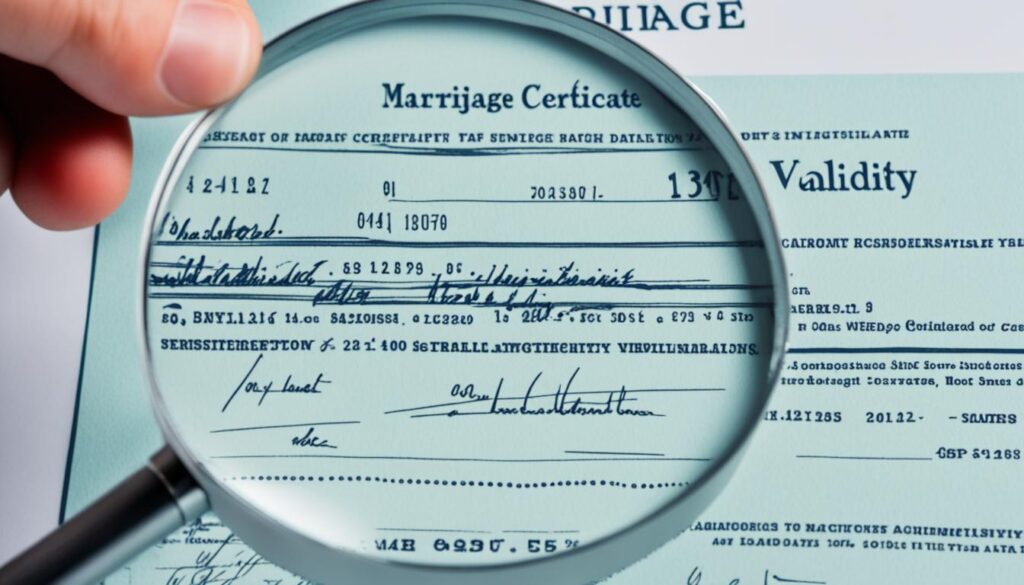Last Updated on: 30th August 2024, 08:12 pm
Adopting a new citizenship through marriage can be an advantageous but intricate journey. This pathway often starts with obtaining residency and gradually leads to naturalization, contingent upon fulfilling several specific requirements. Although marrying a foreign national does not instantly endow one citizenship, it provides a significant step towards achieving it.
For instance, in Brazil, individuals married to a Brazilian citizen can apply for a second citizenship following one year of uninterrupted residence1. Similarly, Canada mandates the same naturalization process for spouses as for other residents2. On the contrary, countries like Mexico and Spain offer an expedited route to naturalization for spouses of their citizens. In Mexico, one can apply after two years of cohabitation1 while in Spain, applicants need to have one year of tax residence1.
The ability to hold dual citizenship and the ensuing tax implications can further complicate the decision. Countries such as Brazil and Portugal let individuals maintain dual citizenship1, whereas Spain has stricter policies on dual nationality1. Hence, understanding these intricate national regulations is crucial for anyone considering citizenship by marriage.
Key Takeaways
- Citizenship By Marriage is a strategic pathway starting from residency to naturalization.
- Brazil grants second citizenship post one year of uninterrupted residence for foreign spouses1.
- Mexico and Spain offer fast-track naturalization for spouses, with specific residency stipulations1.
- Spain generally imposes stringent rules on dual citizenship, contrasting with Brazil and Portugal’s more lenient stance1.
- Understanding the varied tax and residence obligations in different countries is essential for a smooth citizenship transition.
Contact us if you are Interested in Buying Property Abroad!
Introduction to Citizenship By Marriage
Citizenship by marriage is a legal pathway that allows individuals to obtain citizenship in their partner’s country through the institution of marriage. This process is often referred to as spousal citizenship. The specifics of acquiring citizenship through this method can vary significantly between nations, with different countries imposing various requirements, such as residency duration and proof of a genuine marital relationship.
For example, in the United States, the wait time for becoming a U.S. citizen with a marriage green card is reduced to three years compared to the standard five years for other visas3. U.S. citizenship through marriage offers numerous benefits, including the right to vote, protection against deportation, and the ability to sponsor relatives3. Conversely, in Italy, a non-Italian spouse must wait two years from the marriage date if residing in Italy, with this period reducible to one year if the couple has children under 18 or has adopted children4. For those residing outside Italy, the eligibility period is three years after the marriage date, also reducible by half under specific circumstances4.
The marriage and citizenship process also involves significant financial and procedural commitments. In the U.S., the USCIS filing fee for Form N-400, required for naturalization, is $7603. Meanwhile, the fee for applying for Italian citizenship by marriage is €250, payable through a wire transfer to the Italian Ministry of Interior’s account4. Both countries also have stringent criteria for language proficiency. For instance, Italian citizenship applicants must demonstrate adequate knowledge of Italian at the B1 level4, while U.S. applicants must possess knowledge of the English language and civics as part of the naturalization requirements3.
Moreover, the processing times for these applications can vary. In the U.S., the average processing time for naturalization from filing Form N-400 to the ceremony ranges from eight to twelve months3. In Italy, the processing time for citizenship by marriage was reduced from 730 days to 24 months by Law number 173 in December 2020, though this can extend to a maximum of 36 months4.
While the path to spousal citizenship can be challenging, it offers a viable route for those committed to acquiring citizenship through marriage. The marriage and citizenship process demands careful attention to legal requirements, financial obligations, and procedural steps. Meeting these criteria can lead to the numerous benefits and security that come with being a citizen of a new country.
Eligibility Requirements for Citizenship By Marriage

Acquiring U.S. citizenship through marriage is a pathway that requires meeting specific eligibility criteria. These elements ensure that applicants are lawfully positioned and sincerely committed to their marital union and residency in the United States.
Permanent Residency
Before applying for citizenship, one must achieve permanent residency for spouse. This typically means being a lawful permanent resident (LPR) with a green card for at least three years if married to a U.S. citizen56.
Marital Union
The basis of marriage-based citizenship eligibility hinges on a bona fide marital union. The marriage must be legitimate and ongoing, proven by cohabitation and shared lives, for the stipulated duration immediately before the naturalization application6.
Continuous Residence
Continuous residence in the United States as a lawful permanent resident is crucial. An applicant must have lived in the U.S. for at least three years continuously before filing for naturalization57.
Physical Presence
Physical presence requirements further emphasize the commitment to residing in the U.S. An applicant must have been physically present for at least 18 months out of the three years immediately preceding the application filing date57.
Good Moral Character
Demonstrating good moral character is imperative for citizenship. This includes a clean criminal record and evidence of contributions to the community and adherence to U.S. laws and values over the past three years567.
English and Civics Knowledge
Proficiency in English and knowledge of U.S. history and governance are required. Applicants must pass an English language test and a civics test to prove their integration and understanding of American society7. There are certain exceptions based on age and residency duration.
The Naturalization Application Process

The naturalization application process for U.S. citizenship by marriage is meticulously designed to evaluate the eligibility and commitment of applicants. Let’s explore each step involved in this comprehensive procedure.
Preparing Form N-400
To initiate the naturalization application process, applicants must complete Form N-400. This form requires detailed personal and eligibility information. It’s imperative to ensure all information is accurate and complete to avoid delays.
Gathering Supporting Documents
Next, applicants need to gather crucial supporting documents such as proof of marriage and the U.S. citizen spouse’s citizenship. Additional documentation might include evidence of moral character, continuous residence, and physical presence in the U.S89.
Submitting Your Application
Once Form N-400 and the necessary documents are ready, applicants submit their application along with any required fees. The submission can be done either online through the USCIS website or via mail.
Attending the Biometrics Appointment
After submission, the USCIS schedules a biometrics appointment where applicants’ fingerprints, photographs, and signatures are collected. This step helps in performing background checks to verify the applicant’s identity and eligibility.
Attending the Interview
Following biometrics, the next significant step is the interview. During this interview, a USCIS officer reviews the application and asks questions to assess its legitimacy. The interview also involves testing the applicant’s ability to read, write, and speak English and their knowledge of U.S. civics89.
Taking the Oath of Allegiance
The final step in the naturalization application process is attending the naturalization ceremony to take the Oath of Allegiance. Once sworn in, the applicant officially becomes a U.S. citizen and receives a Certificate of Naturalization89.
For more detailed guidance on navigating the Citizenship By Marriage application and preparing your naturalization application, be sure to check relevant resources regularly.
Contact us if you are Interested in Buying Property Abroad!
Spousal Citizenship in Different Countries

Acquiring global citizenship options through marriage presents a diverse landscape, with each country defining its own rules and timelines for naturalization. For instance, the US approved 188,200 naturalization applications for spouses in FY 2023, showing the vast scope of spousal citizenship worldwide10. In contrast, Brazil offers one of the quickest paths to citizenship, requiring just one year of uninterrupted residence for foreign spouses of Brazilian nationals1.
Many European countries present different requirements. Ireland, for example, allows individuals married to Irish citizens to apply for citizenship after one year of reckonable residence, provided the marital union has existed for at least three years1. On the other hand, Poland demands three years of marriage and two years of uninterrupted residence, including passing a language exam1. Furthermore, the UK’s citizenship process for spouses mandates a minimum of three years of residency10.
Diverse spousal citizenship worldwide is evidenced by the requirements in Israel. Under the ‘Law of Return,’ Jews and their descendants can obtain permanent residency, which often extends to their spouses, although this comes with its own set of complexities1. In Spain, the marriage route is streamlined; spouses of Spanish citizens can apply for naturalization after just one year of tax residence1.
Central and South American countries also provide unique options. For instance, Colombia reduces the naturalization process duration for spouses of Colombian citizens from the standard 5-10 years to just two years1. Similarly, Uruguay and Dominica both require three years of marriage before a spouse can apply for citizenship10.
In Asia, Singapore has seen a notable increase in transnational marriages, with about one-third of citizen marriages involving a foreign spouse in 202210. This paints a broader picture of the diverse global citizenship options available for spouses worldwide.
Below is a comparative table showing the various citizenship application requirements based on marriage for several countries:
| Country | Marriage Duration Required | Additional Requirements |
|---|---|---|
| Brazil | 1 year | Uninterrupted residence |
| Spain | 1 year | Tax residence |
| Poland | 3 years | Language exam, 2 years of residence |
| Ireland | 3 years | Reckonable residence |
| Colombia | 2 years | Reduced from 5-10 years |
| Israel | Varies | Law of Return |
| UK | 3 years | Residency |
Legal Validity of Marriage

The marriage validity for citizenship is a critical factor in the naturalization process for spouses of U.S. citizens. In the United States, the principle of marital validity is primarily governed by the place-of-celebration rule, which respects the legality of marriages conducted outside the country if they are valid in the jurisdiction where they were performed. However, certain marriages such as polygamous unions, and those contrived to evade immigration laws, are not recognized as valid by USCIS11.
Validity in the United States
In the U.S., marriage validity for citizenship must be clearly established by the applicant. This means that marriages between close relatives, underage individuals, or those entered into as a civil union or domestic partnership will be scrutinized based on the laws and public policy of the state or jurisdiction where the marriage took place1112. Proxy marriages, unless consummated, are also not recognized as valid for visa purposes12.
Validity Abroad
The recognition of international marriages is based on the place-of-celebration rule. It implies that if a marriage is valid in the country where it was conducted, it is considered valid by USCIS – with exceptions for those that violate U.S. immigration laws. Common law marriages, if recognized in the state where they were established, and civil unions or domestic partnerships considered equivalent to traditional marriages, are also acknowledged11.
Same-Sex and Transgender Marriages
Following the Supreme Court’s ruling in June 2013, USCIS applies the place-of-celebration rule to determine the validity of same-sex marriages for immigration purposes11. The *recognition of international marriages* involving transgender persons is based on whether the marriage is considered valid where it took place11. These marriages are valid for visa adjudication purposes even if they are illegal in the couple’s current country of residence, provided they were legally performed elsewhere12.
| Marriage Type | U.S. Recognition |
|---|---|
| Polygamous Marriages | Not recognized |
| Underage Marriages | Depends on state laws |
| Same-Sex Marriages | Recognized if valid where performed |
| Transgender Marriages | Recognized if valid where performed |
| Proxy Marriages | Recognized if consummated |
Common Concerns and Challenges

When navigating the process of obtaining citizenship through marriage, several common concerns and challenges emerge, including proving the authenticity of the marriage, maintaining continuous residence, demonstrating good moral character, and passing the English and civics tests.
Proving Authenticity of Marriage
One of the foremost obstacles applicants face is establishing marriage authenticity for citizenship. To demonstrate the legitimacy of their marital union, couples are often required to provide extensive documentation, such as joint tax returns, utility bills, joint mortgage or rental agreements, and joint ownership of assets. These documents help validate the ongoing nature of the relationship and affirm that the marriage is not purely for immigration benefits13. Moreover, the marriage must be legally recognized in the U.S., considering both opposite-sex and same-sex marriages under immigration laws14.
Historical context highlights that legislation from the early 20th century already emphasized the significance of legal and socially acknowledged marriages for citizenship purposes13.
Maintaining Continuous Residence
Another key challenge in the naturalization process is maintaining continuous residence. Lawful permanent residents must reside continuously in the U.S. to remain eligible, even if temporarily separated due to necessary circumstances like military service13. Typically, applicants need to have lived in marital union with their U.S. citizen spouse for at least three years before applying for citizenship through marriage. Divorce prior to citizenship could result in application denial, and informal separations might invite closer scrutiny13. A rising backlog of applicants further complicates this process, leaving many in prolonged states of uncertainty14.
Demonstrating Good Moral Character
Applicants must also demonstrate good moral character, which includes having a clean legal record and adhering to community standards of behavior. Any involvement with criminal activity, even minor offenses, can drastically affect eligibility for permanent residency and, eventually, citizenship. Comprehensive documentation demonstrating financial stability and legal status is critical, as failing to meet these requirements could lead to application denial15.
Passing English and Civics Tests
Lastly, passing the English and civics tests is a significant hurdle for many applicants. The naturalization test assesses the applicant’s ability to read, write, and speak basic English, as well as their understanding of U.S. history, government, and laws13. Fluent communication skills and a solid grasp of civic concepts are essential for success.
The marriage authenticity for citizenship and overcoming the challenges in the naturalization process are critical for those seeking to make the United States their home. With proper preparation and understanding, these obstacles can be navigated effectively.
Marriage and Citizenship in the US

In the United States, obtaining a green card through marriage is often the first step toward acquiring US citizenship by marriage. This process involves specific eligibility requirements and procedural steps that ensure both the integrity of the marriage and the commitment of the applicants.
Green Card Through Marriage
The green card marriage process requires that the non-U.S. citizen spouse live in a marital union with their U.S. citizen spouse for at least three years before filing for naturalization. Additionally, they must have continuously resided in the United States as a lawful permanent resident (LPR) during these three years and must be physically present for at least 18 months within this period165.
To initiate the process, the U.S. citizen can also apply for a fiancé(e) visa if the partner is overseas and intends to marry within 90 days of arrival in the United States17. This visa allows the non-U.S. citizen to stay for 90 days, during which the marriage must occur17.
Naturalization Pathway
The naturalization pathway begins with the submission of Form N-400, Application for Naturalization. Applicants must meet several criteria, including being at least 18 years old and demonstrating continuous residence and physical presence requirements. Furthermore, they must show good moral character and a commitment to the principles of the U.S. Constitution5.
- Preparing Form N-400
- Gathering Supporting Documents
- Submitting Your Application
- Attending the Biometrics Appointment
- Attending the Interview
- Taking the Oath of Allegiance
Spouses who have been subjected to battery or extreme cruelty by their U.S. citizen spouse may be exempt from the marital union and other physical presence requirements, as per provisions enacted by Congress16.
The Naturalization Test
The final step in obtaining US citizenship by marriage involves passing the naturalization test. This test assesses the applicant’s understanding of the English language and their knowledge of U.S. civics16. Passing the test demonstrates readiness to embrace the responsibilities and privileges of American citizenship.
Marriage and Visa Procedures

Exploring the processes and requirements for marriage and visa procedures involves several steps, each critical for those aiming to gain citizenship through marriage. This section will provide a detailed spouse visa citizenship guide and delve into the adjustment of status for spouse.
Spouse Visa Citizenship
To start, a U.S. citizen can bring their foreign spouse to the United States either through an Immigrant visa for a Spouse of a U.S. Citizen (IR1 or CR1) or a nonimmigrant visa for a spouse (K-3)18. Particularly, if you plan to use the K-3 visa, remember it must be filed in the country where the marriage took place18. Once the marriage is valid, the foreign spouse can eventually apply for naturalization. Spouses eligible for naturalization based on marriage to a U.S. citizen residing in the U.S. must meet certain criteria, including a minimum of 3 years of continuous residency as a Lawful Permanent Resident (LPR) before filing for naturalization16.
Adjustment of Status
The adjustment of status for spouse is a key pathway for those already in the United States on a different visa. This process enables them to change their status to that of a permanent resident. Applicants must demonstrate physical presence in the U.S. for at least 18 months out of the 3 years preceding the naturalization application16. Also, spouses filing based on marriage to a U.S. citizen may apply up to 90 days before meeting the 3-year continuous residence requirement16. In addition, victims of battery or extreme cruelty by their U.S. citizen spouse are exempt from certain naturalization requirements like living in a marital union for 3 years before filing16.
Consular Processing
For spouses outside the U.S., consular processing is the pathway to immigrate after the marriage to a U.S. citizen. Consular officers at U.S. Embassies and Consulates will adjudicate immigrant visa applications upon receipt of an approved I-130 or I-140 petition from USCIS18. This method involves the foreign spouse applying for an immigrant visa in their home country and attending a consular interview. Once approved, they can enter the U.S. as a permanent resident.
Conclusion
Securing citizenship through marriage, also referred to as achieving spousal citizenship, is a multifaceted process requiring careful navigation of legal frameworks and comprehension of eligibility criteria. The journey presents unique opportunities for new beginnings and significant challenges that must be diligently managed. In the United States, for instance, USCIS processes and accepts approximately 1 million individuals as legal residents annually, highlighting the popularity and importance of these immigration pathways19.
Applicants must be well-prepared to tackle various stages from initial application to the final oath, ensuring all criteria are meticulously met. The cost for some couples seeking a marriage-based green card can exceed $20,000, reflecting the substantial financial commitment needed19. Expedited processing times for spouses of citizens illustrate the preference given to family reunification, with an average waiting period ranging from 10 to 17 months19.
Global statistics further underscore this phenomenon, as seen in France, where naturalization by marriage leads to an impressive 62% of immigrants obtaining citizenship20. However, challenges such as the suspicion and scrutiny of marital legitimacy remain prevalent, with 20-33% of marriages between US citizens and immigrants suspected to be fraudulent by USCIS20. Despite these hurdles, the significant benefits and rights conferred through citizenship make this endeavor worthwhile for many, ultimately allowing individuals to embrace new cultures and opportunities.
Contact us if you are Interested in Buying Property Abroad!
FAQ
What is Citizenship By Marriage?
What are the general eligibility requirements for marriage-based citizenship?
What is the process to apply for naturalization through marriage?
How does spousal citizenship vary in different countries?
What is the legal validity of a marriage for spousal citizenship purposes?
What are common concerns and challenges in the marriage and citizenship process?
How can I obtain a green card through marriage in the US?
What are the visa procedures for achieving citizenship through marriage?
What is the significance of the Oath of Allegiance in the naturalization process?
Can dual citizenship be held when acquiring spousal citizenship?
Source Links
- https://nomadcapitalist.com/global-citizen/second-citizenships-can-get-marrying-a-foreigner/
- https://travel.state.gov/content/travel/en/us-visas/immigrate/family-immigration/immigrant-visa-for-spouse.html
- https://immigrationhelpla.com/us-citizenship-through-marriage/
- https://italiancitizenshipassistance.com/citizenship-by-marriage/
- https://www.uscis.gov/citizenship/learn-about-citizenship/citizenship-and-naturalization/i-am-married-to-a-us-citizen
- https://citizenpath.com/citizenship-through-marriage/
- https://citizenpath.com/citizenship-requirements-3-year-lpr/
- https://www.legalzoom.com/articles/us-citizenship-through-marriage-how-does-it-work
- https://berardiimmigrationlaw.com/naturalization-based-on-marriage-to-a-u-s-citizen/
- https://finance.yahoo.com/news/17-countries-citizenship-marriage-world-103123100.html
- https://www.uscis.gov/policy-manual/volume-12-part-g-chapter-2
- https://fam.state.gov/fam/09FAM/09FAM010208.html
- https://reevesimmigration.com/everything-to-know-about-u-s-citizenship-through-marriage-to-a-u-s-citizen/
- https://hackinglawpractice.com/marriage-green-card-denial-rate/
- https://www.bataraimmigrationlaw.com/marriage-green-card-mistakes
- https://www.uscis.gov/policy-manual/volume-12-part-g-chapter-3
- https://www.uscis.gov/sites/default/files/document/guides/A2en.pdf
- https://travel.state.gov/content/travel/en/us-visas/immigrate/family-immigration/immigrant-visa-for-a-spouse-or-fiance-of-a-us-citizen.html
- https://www.yesmagazine.org/opinion/2022/10/12/visa-marriage-immigration-green-card
- https://www.frontiersin.org/journals/sociology/articles/10.3389/fsoc.2021.659372/full
Best Countries For Citizenship by Aparthotel.com
- What is Citizenship By Investment?
- Acquiring Citizenship By Marriage
- Benefits Of EU Citizenship For American Expats
- Countries That Allow Dual Citizenship
- Easiest EU Country To Get Citizenship
- Instant Citizenship Countries

As a passionate, global-thinking Real Estate Investor I am constantly looking for the best opportunities to invest in Properties. With Aparthotel.com I am building an All-In-One Global Real Estate Platform, where people can analyse, rent or invest in properties. Additionally I help Investors with comparing the best financing options as well as give detailed Consultation on the buying process for Real Estate Investments around the world. I am looking forward to sharing my knowledge on this Website and feel free to reach out to me if you have any questions.

Comments